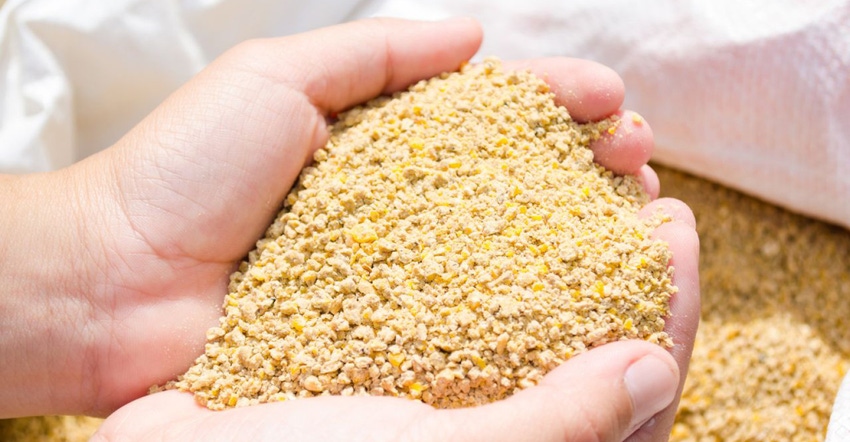Germany eyes significant increase in feed production
Growth rate for Germany's feed industry projected to return to levels of the early 2000s.
October 13, 2018

By Eugene Gerden*
Germany plans to significantly increase its volume of feed production during the next several years, according to recent statements of some of the county’s leading local producers and senior officials at the German Ministry of Economy.
Historically, Germany -- the largest economy in the European Union -- along with France, has been the largest producer of feed in the European Union. However, in recent years, the development of the feed industry in Germany has significantly slowed. This has been mainly due to the stagnation of the German meat industry, which was the result of tightened ecology requirements, the introduction of a ban on the exports of meat and meat products to Russia and several other factors.
In the case of Russia’s ban, prior to 2014-15, Russia was among the major importers of German meat and meat products, which contributed to the growth of meat and feed production in the country. However, the introduction of a ban by Russia forced many German meat producers and farmers to significantly cut their production volumes and reduce feed purchases. The latter resulted in a significant decline in the demand and consumption of feed in the country and stagnation in the industry.
Currently, the annual growth rate of Germany's feed industry is estimated at only 1-2%, which is significantly lower than in the early 2000s, when the rate was more in the range of 7-10% and even higher. Still, according to state plans, these figures should return to the levels of the early 2000s during the 2019-20 period.
The rise will be mainly due to the final recovery of the German economy from the financial crisis -- and its consequences in the EU -- caused by serious lending problems of some of the members of the EU and the forthcoming Brexit. In addition, the government may consider the provision of support to domestic producers, details of which are currently being discussed.
According to data from The German Farmers' Assn. (DBV), a public association that unites leading German feed producers, total production of feed in Germany in 2017 amounted to about 24.5 million metric tons, which was valued at about 8 billion euros. The official statistics for the current year have not yet been published; however, according to some sources close to DBV, the growth of the industry is equivalent to about 3-4%.
According to DBV, there are 330 feed mills, producing feed for dairy (3.5 mmt), beef (3.0 mmt), broilers (2.5 mmt) and layers (2.3 mmt).
The decrease in the swine population hasn’t been reflected in Germany’s feed production figures. Cattle feed tonnage declined by just over 300,000 mt between 2013 and 2017.
The list of Germany’s largest feed producers includes Cargill, Vilomix, Agravis Raiffeisen, ForFarmers, Miavit, Deutsche Tiernahrung Cremer and Bröring and others.
In terms of market structure, over the past three years, the top 10 feed producers increased their total tonnage by 12.5% to produce 11.5 mmt of feed and succeeded in achieving a 55% market share. Compared with other agribusiness industries (such as agricultural chemistry and meat packing), the degree of concentration proves to be comparably low, and the competition is intense in the feed sector.
In recent months, the majority of leading feed producers have announced their plans to significantly raise prices for their products due to a severe summer drought in Germany. According to some German media reports, Germany is currently among a number of Northern European countries suffering major crop damage after a summer heat wave. The country’s 2018 grain harvest will be the lowest in 24 years after crops wilted under the highest summer temperatures since records were started in 1881.
The heat wave heavily damaged animal feed grains, with straw and hay in very short supply.
*Eugene Gerden is an international freelance writer specializing in covering global meat and feed industries. He has worked for several industry titles and can be reached at [email protected]
You May Also Like


.png?width=300&auto=webp&quality=80&disable=upscale)
